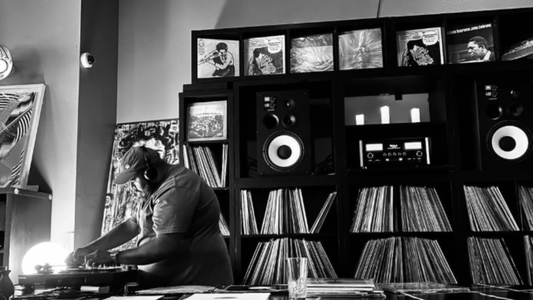
Electribe 101 – Electribal Memories (1990)
Electribal Memories (1990) by Electribe 101 is a lost classic — deep-house elegance meets soul introspection.
By Rafi Mercer
Every now and then, a record slips through the cracks of history — too elegant for its moment, too subtle for its marketing. Electribal Memories by Electribe 101 is one of those. Released in 1990, it came and went with barely a ripple on the charts, yet three decades later it sounds like a blueprint: part deep-house, part torch-song, part after-hours confession.
At the centre is Billie Ray Martin, a German singer who moved to London with a voice like chrome — cool on the surface, burning underneath. Around her, the band (Joe Stevens, Les Fleming, Brian Nordhoff, and Rex Bostedt) built a sound that could only have been born in that brief window between analogue warmth and digital possibility. Think smoky clubs, dubby basslines, and synth chords that hang in the air like perfume.

The opener, “Talking with Myself,” is still astonishing. It starts as a murmur — one looping sample, a hi-hat pattern, a single heartbeat of bass — and then Billie’s voice appears, detached yet tender: “My conversation is dying… talking with myself.” Through a good system, the track feels endless, its reverb folding space into silk. It’s dance music that stares inward — a mirrorball for the mind.
“Tell Me When the Fever Ended” follows with late-night gospel energy, while “You’re Walking” pairs a classic house groove with existential cool. Each track is built on restraint. Electribe 101 understood that the most sensual moments come from tension — from what’s not said. Their arrangements breathe; the kick drums are soft but deliberate; the synths shimmer without show.
The album’s emotional core, though, is its melancholy. There’s romance here, but it’s haunted — love as echo rather than declaration. When Billie sings, she sounds like she’s broadcasting from the edge of a dream: part Dusty Springfield, part Kraftwerk android, all emotion. She didn’t perform the songs so much as inhabit them.
On a fine hi-fi or in a dimly lit listening bar, Electribal Memories feels immediate again. The production — crisp yet roomy — rewards volume. Bass frequencies glide, midrange textures bloom, and Martin’s voice cuts like light through fog. The sound is analogue house with jazz phrasing; the mood, somewhere between Berlin solitude and London soul.
What’s striking now is how contemporary it still feels. You can hear its fingerprints in Everything But the Girl’s Temperamental, in Roísín Murphy’s vocal poise, in the emotional restraint of modern downtempo. Electribe 101 were doing “listening-bar dance music” before anyone coined the term.
They only made this one studio album (and the long-delayed follow-up Electronic Confessions finally appeared decades later), but that brevity adds to the myth. Electribal Memories endures because it exists outside of time — an album you find late at night, fall into, and wonder how you ever missed.
Some records burn; others smoulder forever. This one glows.
Rafi Mercer writes about the spaces where music matters.
For more stories from Tracks & Tales, subscribe, or click here to read more.














